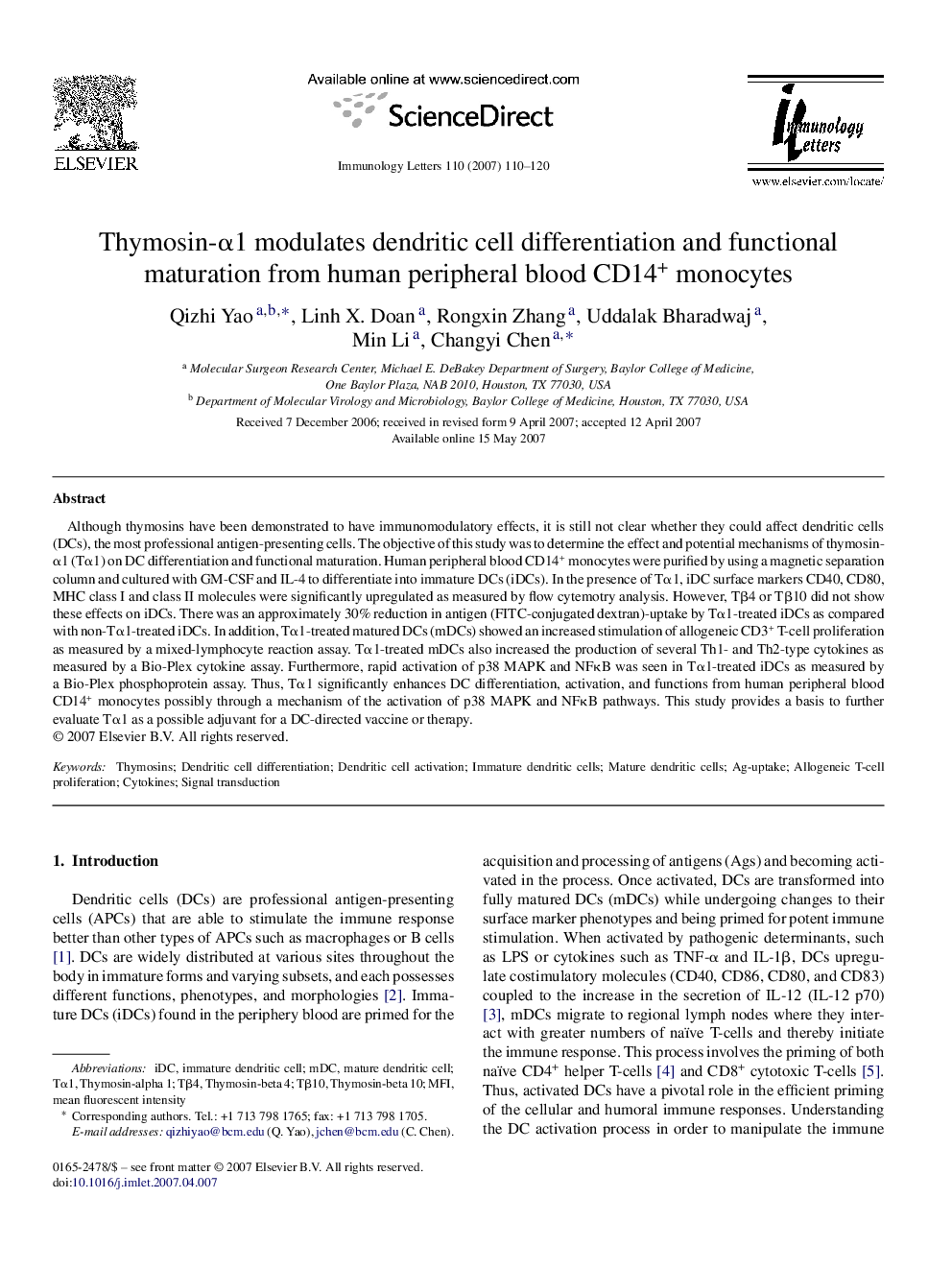| Article ID | Journal | Published Year | Pages | File Type |
|---|---|---|---|---|
| 3356311 | Immunology Letters | 2007 | 11 Pages |
Although thymosins have been demonstrated to have immunomodulatory effects, it is still not clear whether they could affect dendritic cells (DCs), the most professional antigen-presenting cells. The objective of this study was to determine the effect and potential mechanisms of thymosin-α1 (Tα1) on DC differentiation and functional maturation. Human peripheral blood CD14+ monocytes were purified by using a magnetic separation column and cultured with GM-CSF and IL-4 to differentiate into immature DCs (iDCs). In the presence of Tα1, iDC surface markers CD40, CD80, MHC class I and class II molecules were significantly upregulated as measured by flow cytemotry analysis. However, Tβ4 or Tβ10 did not show these effects on iDCs. There was an approximately 30% reduction in antigen (FITC-conjugated dextran)-uptake by Tα1-treated iDCs as compared with non-Tα1-treated iDCs. In addition, Tα1-treated matured DCs (mDCs) showed an increased stimulation of allogeneic CD3+ T-cell proliferation as measured by a mixed-lymphocyte reaction assay. Tα1-treated mDCs also increased the production of several Th1- and Th2-type cytokines as measured by a Bio-Plex cytokine assay. Furthermore, rapid activation of p38 MAPK and NFκB was seen in Tα1-treated iDCs as measured by a Bio-Plex phosphoprotein assay. Thus, Tα1 significantly enhances DC differentiation, activation, and functions from human peripheral blood CD14+ monocytes possibly through a mechanism of the activation of p38 MAPK and NFκB pathways. This study provides a basis to further evaluate Tα1 as a possible adjuvant for a DC-directed vaccine or therapy.
